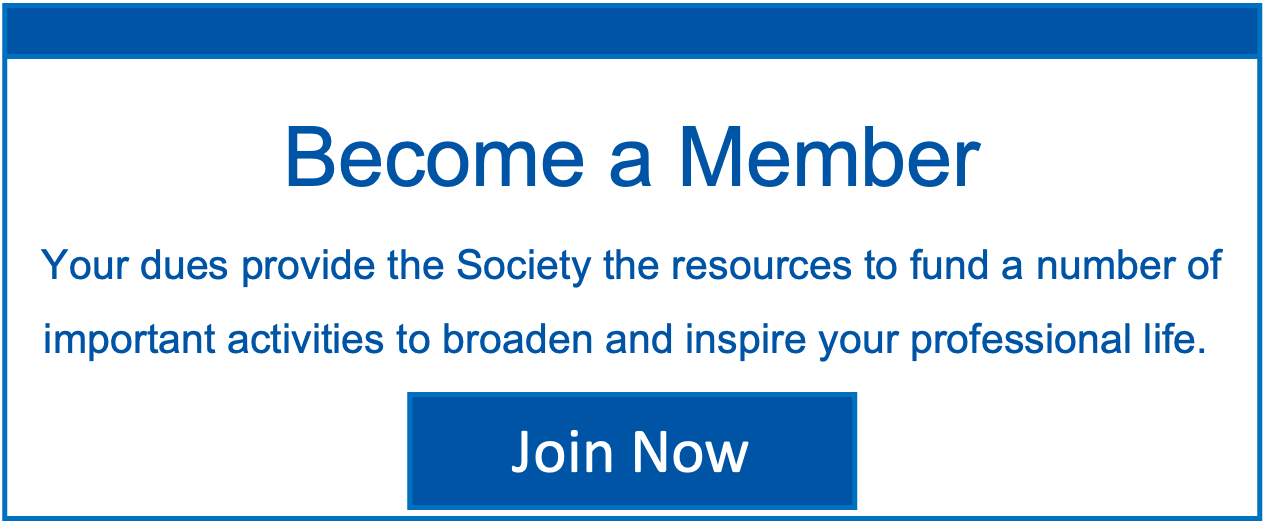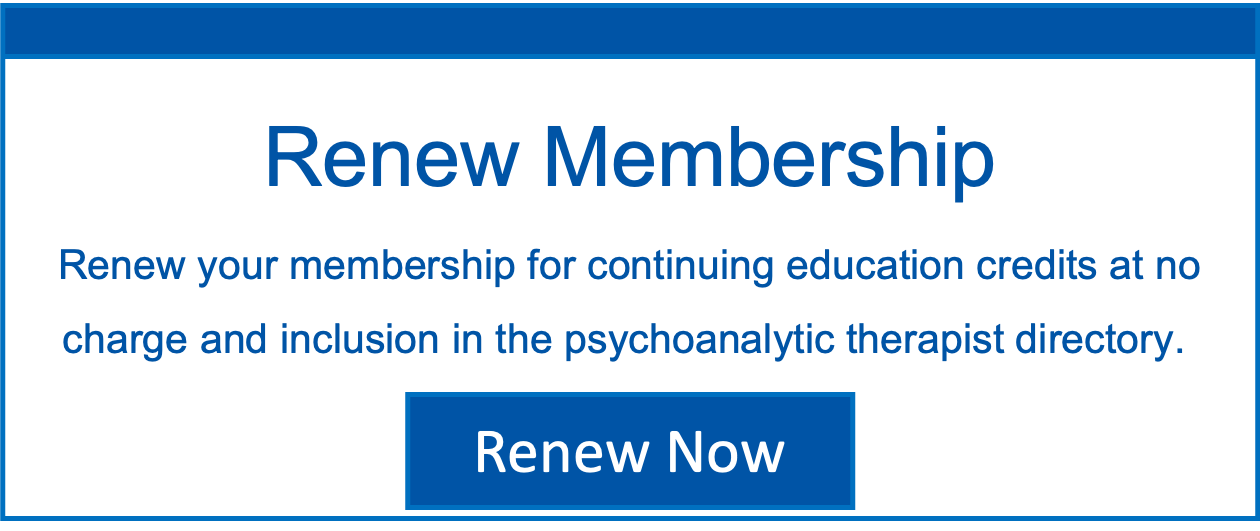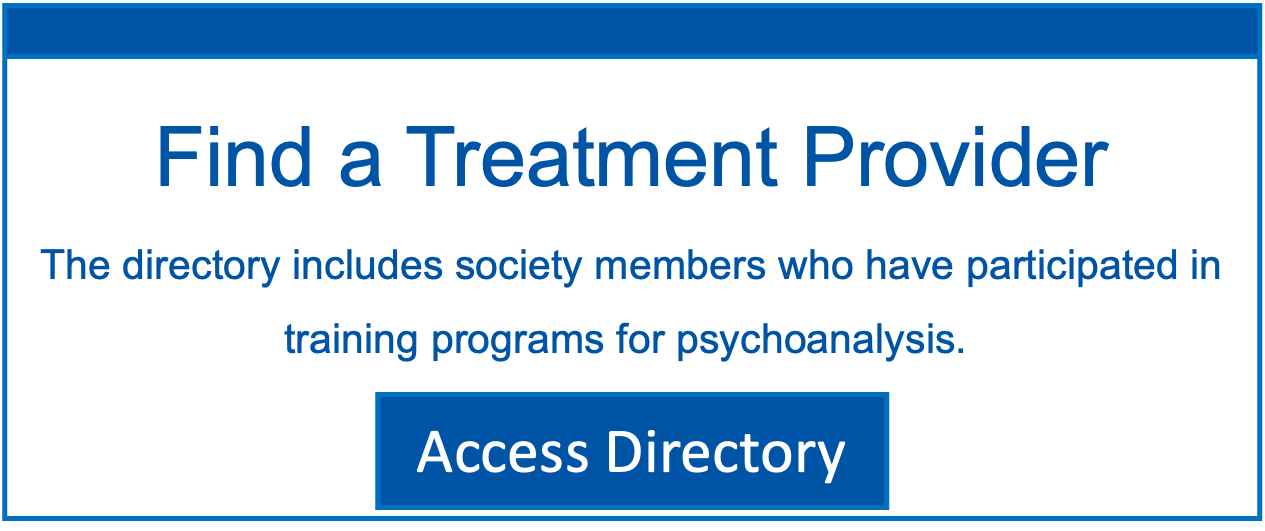|
Welcome to the Chicago Psychoanalytic Society!
A Note from the President As we enter the first month of 2026—Januarius—we are reminded of Janus, the Roman god of beginnings and guardian of thresholds, who looks both backward and forward at once. Janus invites us to pause at the doorway of time, holding the tension of memory and anticipation, like a door that faces both within and without. This feels especially fitting for the Society at this moment. Following the launch of our digitized archives in December, we find ourselves engaged in a form of collective remembering—recovering voices, ideas, and encounters that continue to shape our work. In psychoanalytic terms, the archive is not simply a record of the past, but a living memory that gains meaning as it is revisited and re-encountered in the present. Above is the pre-presentation video from our December 16 event, offering a glimpse of the archives along with reflections on past presenters by Chicago analysts who knew them, as we turn with intention toward the year ahead. The Society’s first program of the year will be offered on Saturday, January 17, from 10:00 am to 12:00 pm (Central Time). Legendary child analyst Anne Alvarez will present live from London via Zoom on her psychoanalytic work in enlivening traumatized children. Please see the invitation below for full details and registration information. The second program, “Love Lessons: The Power of Metaphors in Couple Therapy,” will be presented by esteemed Chicago psychoanalyst and Society member Art Nielsen on Tuesday, January 27, from 7:00 to 9:00 pm (Central Time), also via Zoom. For additional details and to register, please click here. Finally, in response to the enthusiastic interest generated by the Society’s November program on retirement, Chicago analysts and Society members Lucy Freund and Neal Spira are proposing a group opportunity for members who are navigating retirement to meet and talk together. At present, they are envisioning six monthly meetings, with the option to continue if participants wish. If you are interested, please get in touch with them by email at the addresses listed below. Lucy Freund Neal Spira freundlucy@gmail.com nspiramd@gmail.com We hope you will join us for these engaging programs as we begin the new year.Stephanie Fariss |
Upcoming Program co-sponsored by: The Chicago Psychoanalytic Institute Patterns of Rhythm and Sound in our Communications to Empty Patients Presenter: Anne Alvarez, PhD, MACP Saturday, January 17, 2026, at 10:00 AM – 12:00 PM Central time By Zoom Only
Anne Alvarez, PhD, M.A.C.P is a Consultant Child and Adolescent Psychotherapist (and retired Co-Convener of the Autism Service, Child and Family Dept. Tavistock Clinic, London, where she still teaches.). She is author of Live Company: Psychotherapy with Autistic, Borderline, Deprived and Abused Children. and has edited with Susan Reid, Autism and Personality: Findings from the Tavistock Autism Workshop. A book in her honour, edited by Judith Edwards, entitled Being Alive: Building on the Work of Anne Alvarez was published in 2002. She was Visiting Professor at the San Francisco Psychoanalytic Society in November 2005 and is an Honorary Member of the Psychoanalytic Centre of California. Her latest book, The Thinking Heart: Three Levels of Psychoanalytic Therapy with Disturbed Children was published in April 2012 by Routledge. A book by Kai Wung on Alvarez in a series on influential thinkers in psychoanalysis is in preparation for Routledge. Description: This presentation emphasizes the importance of the prosody which accompanies our verbal interpretations and the way in which it can be life giving where the patient has lost contact with his own and the world’s aliveness. I have suggested five components in such an approach- making it matter, making it last, building a sense of agency and of abundance, going beyond containment to build aspects of a new identity, and knowing when to own boredom and address non-meaning. Approximate breakdown of time: First Hour: presentation Second Hour: discussion with audience Learning Objectives After attending this session, participants should be able to:
Continuing Education Credits are offered exclusively to Society members in all membership categories and those intending to join. The presenter, Anne Alvarez, PhD, MACP, and the organizer, Lisa Karaitis, PsyD, have no relevant financial relationships with ineligible companies to report. Participants are asked to be aware of the need for privacy and confidentiality throughout the program. ACCME Accreditation Statement: This activity has been planned and implemented in accordance with the accreditation requirements and policies of the Accreditation Council for Continuing Medical Education (ACCME) through the joint providership of American Psychoanalytic Association (APsA) and the Chicago Psychoanalytic Society. The American Psychoanalytic Association is accredited by the ACCME to provide continuing medical education for physicians. AMA Credit Designation Statement: The American Psychoanalytic Association designates this live activity for a maximum of 2 AMA PRA Category 1 Credit(s)™. Physicians should claim only the credit commensurate with the extent of their participation in the activity. Disclosure Statement: The APsA CE Committee has reviewed the materials for accredited continuing education and has determined that this activity is not related to the product line of ineligible companies and therefore, the activity meets the exception outlined in Standard 3: ACCME's identification, mitigation and disclosure of relevant financial relationship. This activity does not have any known commercial support. Accreditation Information for Professionals Other Than Physicians. The Chicago Psychoanalytic Institute maintains responsibility for this program and its content, in relation to accreditation for CE credits for non-physicians. CPI is licensed by the Illinois Department of Financial and Professional Regulation to sponsor continuing education credits for (license numbers in parentheses): Social Workers (159.000122), Professional Counselors (197.000202), Marriage and Family Therapy Therapists (168.00204), and Clinical Psychologists (268.000091). Eligible professionals will receive 2.0 continuing education credits for attending the entire program. To receive these credits an evaluation form must be completed online. Learners must claim the amount of time spent in the educational activity and that will be the amount of credit they will earn. REGISTER NOW |
Mission
Organized June 8, 1931 and accepted as a Constituent Society by the American Psychoanalytic Association in 1932, the Society's mission is to advance the field of psychoanalysis through the promotion of education and research by its members and the the community-at-large; to maintain and promote professional and ethical standards of the profession; to promote professional activities of its members by assisting career development and generating marketing opportunities; and to enhance the vitality of the Society by encouraging a diversity of opinion, assessing the interests of its members, facilitating member involvement in Society activities and fostering a collegial community. The Society is committed to maintaining an educational environment free from sexual harassment, sexual violence, and discrimination based on race, color, sex, age, religion, disability, national origin, sexual orientation, or any other basis prohibited by law. It also strives to initiate, welcome, and maintain ongoing conversations and discussions related to inclusivity among its members and the community-at-large. |




